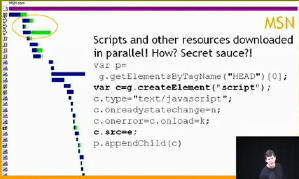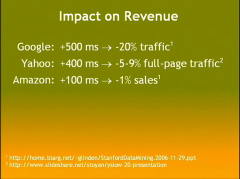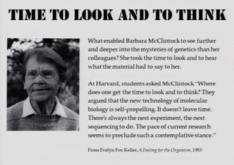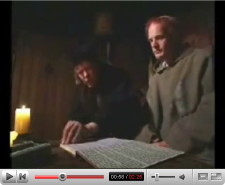Just scanning a few Google Tech Talks on YouTube. I don’t visit it often, but followed a link from Rob Style‘s twitter. I find the video’s a bit slow, so tend to flick through with the sound off, really wishing they had fast forward buttons like a DVD as quite hard to pull the little slider back and forth.
One talk was by Stuart Hameroff on A New Marriage of Brain and Computer. He is the guy that works with Penrose on the possibility that quantum effects in microtubules may be the source of consciousness. I notice that he used calculations for computational capacity based on traditional neuron-based models that are very similar to my own calculations some years ago in “the brain and the web” when I worked out that the memory and computational capacity of a single human brain is very similar to those of the entire web. Hameroff then went on to say that there are an order of magnitude more microtubules (sub-cellular structures, with many per neuron), so the traditional calculations do not hold!
Microtubules are fascinating things, they are like little mechano sets inside each cell. It is these microtubules that during cell division stretch out straight the chromosomes, which are normally tangled up the nucleus. Even stranger those fluid movements of amoeba gradually pushing out pseudopodia, are actually made by mechanical structures composed of microtubules, only looking so organic because of the cell membrane – rather like a robot covered in latex.
The main reason for going to the text talks was one by Steve Souders “Life’s Too Short – Write Fast Code” that has lots of tips for on speeding up web pages including allowing Javascript files to download in parallel. I was particularly impressed by the quantification of costs of delays on web pages down to 100ms!
This is great. Partly because of my long interest in time and delays in HCI. Partly because I want my own web scripts to be faster and I’ve already downloaded the Yahoo! YSlow plugin for FireFox that helps diagnose causes of slow pages. And partly because I get so frustrated waiting for things to happen, both on the web and on the desktop … and why oh why does it take a good minute to get a WiFi connection …. and why doesn’t YouTube introduce better controls for skimming videos.
… and finally, because I’d already spent too much time skimming the tech talks, I looked at one last talk: David Levy, “No Time To Think” … how we are all so rushed that we have no time to really think about problems, not to mention life1. At least that’s what I think it said, because I skimmed it rather fast.





